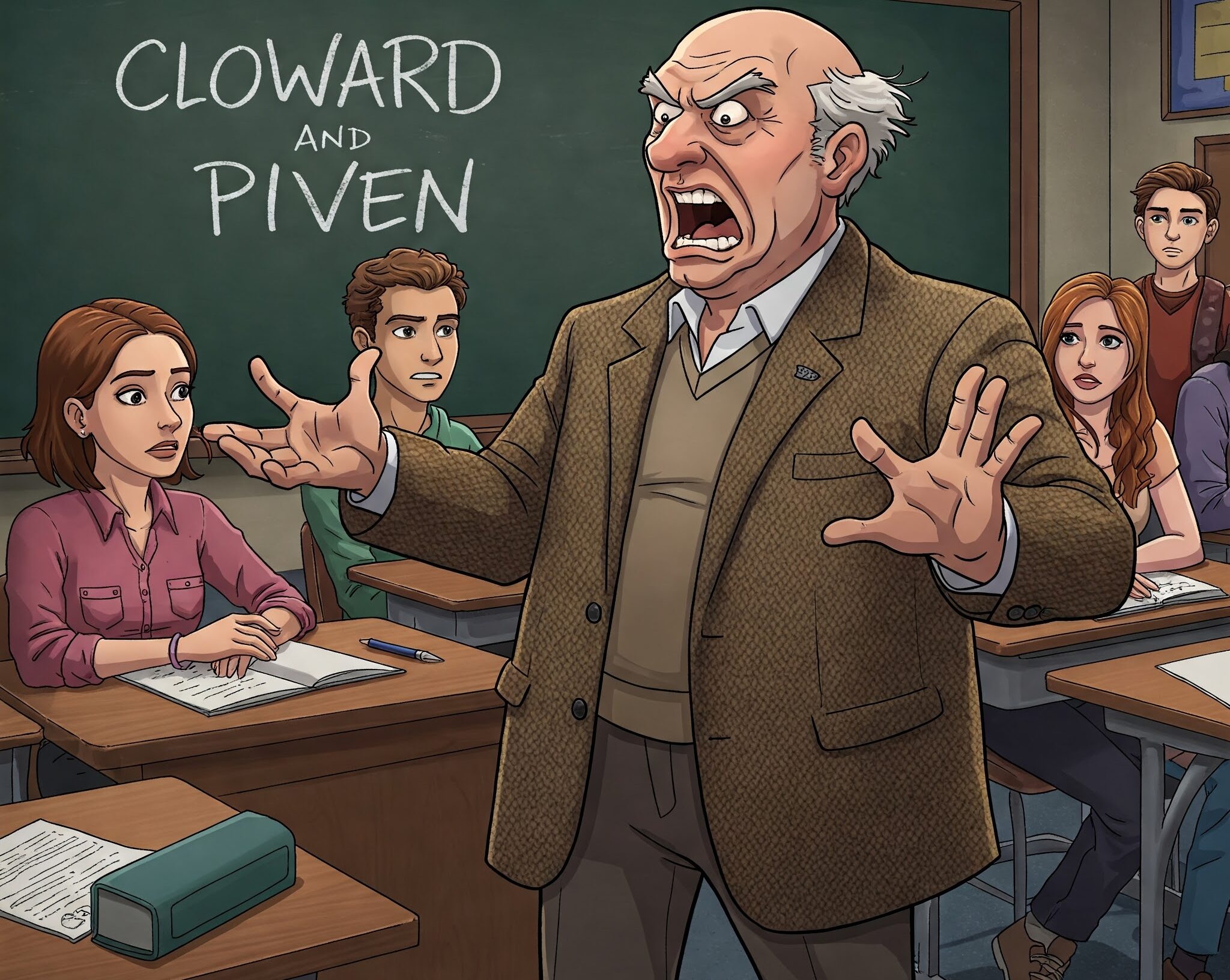The Cloward-Piven strategy is a controversial political theory. It has sparked debate about its influence on students. This article explores the potential negative ramifications of teaching this strategy in political science programs. Specifically, it examines the impact on students’ understanding of American history, current affairs, and long-term goals.
What is the Cloward-Piven Strategy?
Developed in the 1960s by sociologists Richard Cloward and Frances Fox Piven, the Cloward-Piven strategy proposes that overloading the welfare system can lead to its collapse. This collapse, they argue, would pave the way for radical social reforms like a guaranteed minimum income. Critics argue that teaching this strategy promotes a cynical view of government. They believe it encourages disruptive tactics that could harm society.
Distrust of Government Institutions
One potential negative consequence is the development of distrust in government institutions. By framing the welfare system as flawed and susceptible to manipulation, the strategy may foster skepticism towards government programs and policies. Consequently, this skepticism could lead to disengagement from the political process. Students may become reluctant to participate in civic life.
Encouraging Disruptive Tactics
Furthermore, the strategy’s emphasis on overloading the system could encourage students to adopt disruptive tactics. These tactics might even be illegal. While peaceful protest and civil disobedience are important for social change, the Cloward-Piven strategy focuses on overwhelming the system. This could be interpreted as justification for extreme measures. As a result, students might disregard the rule of law. They may engage in activities that harm individuals or communities.
Long-Term Goals and Potential Bias
The long-term goals of professors who teach the Cloward-Piven strategy likely vary. Some may view it as a case study in social movements and political change. Others may see it as a tool for achieving their own political objectives. Regardless, teaching this strategy raises concerns about academic bias and indoctrination.
Similarly, students’ long-term goals may be influenced by their beliefs and experiences. Some may be inspired to engage in social activism. Others may adopt a more cynical view of politics and focus on self-interest. The strategy could discourage students from constructive dialogue and compromise. It may lead them to view politics as a zero-sum game.
Not All Students Negatively Influenced
It is important to acknowledge that not all students will be negatively influenced. Many may critically analyze the theory and its implications. However, the potential for negative influence exists, particularly for students predisposed to distrust government or attracted to radical ideologies.
Conclusion
In conclusion, teaching the Cloward-Piven strategy raises concerns about its potential negative influence. It promotes a cynical view of government and encourages disruptive tactics. This could discourage constructive political participation and lead students to adopt extreme views. Educators must approach the teaching of this strategy with caution. They should provide students with a balanced and critical perspective.

